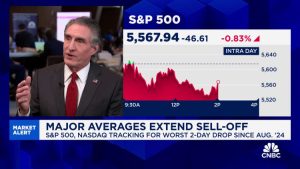Share this page:
It doesn’t seem that inflation will be going down any time soon, and vulnerable families are already feeling financial pressure. And once the new energy price cap comes into effect in April 2022, the pressure will likely get more intense.
Any issues you might have with credit card debt are likely to get worse come April if you don’t act quickly. For this reason, taking steps to save money wherever you can, and soon, could be an excellent move to remain financially resilient. So, how can you save money on credit card debt? Read on to find out.
Consider a balance transfer credit card
A balance transfer credit card allows you to move your outstanding debt from any existing credit cards to one new card offering benefits like a lower interest rate or rewards. The deals are usually pretty good and you could access a 0% interest rate for several months to reduce your outgoings. This could help you save, pay off your debt quicker and ease some financial pressure.
The Motley Fool has done the hard work for you by compiling a list of top-rated balance transfer credit cards. It could be worth your while checking them out to avoid missing out on an easy opportunity to reduce your credit card debt.
Switch providers to free up money from your bills
It might be easy to do without luxuries, especially when finances are tight. But what do you do about essentials without which you cannot get by? With the cost of living on the rise, it’s important to look for ways to cut down these costs. This will free up money that you can use to pay off your debt quicker.
Determine how much your current providers are charging you for insurance, gas and electricity, Internet and phone calls. Compare them with other providers to find out if there are cheaper deals you might be missing out on. Utilise comparison websites to make it easier for you. The Motley Fool has compiled top-rated car insurance and home insurance comparison pages to get you started.
Research also shows that you could save upwards of £240 on energy by switching providers, which is something worth considering, especially now that the energy price cap is set to rise so dramatically.
Set up a direct debit to cover your monthly credit card payments
Failing to make a credit card payment can rack up more debt through penalties. It can also make it harder for you to borrow money in the future. Any late or missed payments will show up on your credit report and are likely to impact your credit rating.
Start by evaluating your finances and taking the steps mentioned above to ensure you have sufficient cash for your expenses. You can then set up direct debits that will take the hassle out of making payments. Doing so will ensure that you don’t miss payments in future, keeping your credit record clean and your credit score intact.
Was this article helpful?
YesNo
About the author
Victor is a freelance writer who loves to read and write about personal finance and related disciplines with the aim of educating people to make better financial and investment decisions.
Share this page:
Some offers on The Motley Fool UK site are from our partners — it’s how we make money and keep this site going. But does that impact our ratings? Nope. Our commitment is to you. If a product isn’t any good, our rating will reflect that, or we won’t list it at all. Also, while we aim to feature the best products available, we do not review every product on the market. Learn more here. The statements above are The Motley Fool’s alone and have not been provided or endorsed by bank advertisers. John Mackey, CEO of Whole Foods Market, an Amazon subsidiary, is a member of The Motley Fool’s board of directors. The Motley Fool UK has recommended Barclays, Hargreaves Lansdown, HSBC Holdings, Lloyds Banking Group, Mastercard, and Tesco.
This post was originally published on Motley Fool






